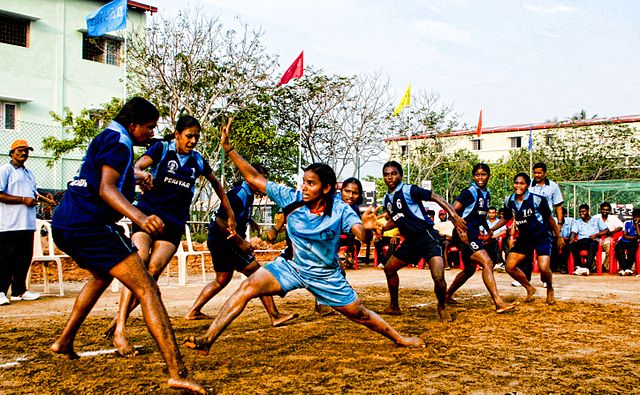At the Asian Games 2022, India secured fourth on the medal table, achieving its best-ever performance and a total of 107 medals. The credit for this record-breaking and historic accomplishment goes to consistent efforts from corporates, including sponsorships and scholarships, and a meticulously designed sports policy from the government. As we look back on the triumphs at the recent Games, it is crucial to remember that there is still a lot more to be done before India emerges as a sporting giant.
Corporate Social Responsibility (CSR) has emerged as a catalyst for change within the Indian sports arena. The evolution is more than a mere paradigm shift—it represents a progressive reformation that transcends conventional business boundaries and fosters holistic development. CSR can support India on its journey to foster our talent pool and ensure access to quality sports infrastructure and resources.
Fostering Grassroots Talent Development and Elevating Sport Infrastructure
At the heart of the CSR-driven transformation in Indian sports lies the cultivation of grassroots talent. Several organisations have acknowledged the latent potential present in the rural communities of the nation and are committed to harnessing it. By supporting sports academies and coaching programmes in remote and underserved regions, corporates can not only identify young prodigies but also promote the ethos of physical fitness and active lifestyles among the youth.
CSR can also play an instrumental role in elevating sporting infrastructure to international standards. Collaborative efforts between corporates, governments, and sports organisations have resulted in the construction and maintenance of world-class stadiums, sports complexes, and training facilities.
This not only uplifts the standards of Indian sports but also positions the nation as a potential host for international sporting events, thereby fostering economic growth.
Advancing Gender Equality and Inclusivity
One of the most laudable facets of CSR in Indian sports is its commitment to advancing gender equality and inclusivity. In a nation where gender disparities have historically permeated sports, CSR is actively challenging these stereotypes.
Campaigns that promote women’s sports are inspiring and galvanizing. They are not only fostering a new generation of female athletes but also effecting a paradigm shift in societal norms. Moreover, CSR programmes are working tirelessly to make sports accessible to individuals with disabilities, thereby reinforcing a sense of belonging and showcasing the transformative power of sports as an inclusive endeavour.
Holistic Support for Athletes
CSR in Indian sports goes beyond the purview of talent development and infrastructure enhancement; it extends comprehensive support to athletes. Recognising that support should encompass training, facilities, and maintenance, corporates are increasingly attuned to athletes’ evolving needs throughout their careers.
Investing in Sports Education and Research
Another significant contribution of CSR to Indian sports is the investment in sports education and research. Corporates are actively funding sports education programmes and research initiatives to enhance the knowledge and skills of coaches, athletes, and sports scientists.
By supporting institutions focused on sports education, CSR is helping in the development of cutting-edge training methods, sports science advancements, and coaching expertise. This not only raises the overall quality of Indian sports but also contributes to the nation’s competitiveness on the global stage.
Additionally, these investments in research can lead to innovations in sports technology and equipment, further benefiting athletes and sports development.
Encouraging Public-Private Partnerships
CSR initiatives are actively encouraging and facilitating public-private partnerships (PPPs) in sports development. These partnerships between corporations, government bodies, and sports organisations are crucial for the sustainable growth of Indian sports. By fostering collaboration between different stakeholders, CSR plays a pivotal role in mobilising resources and expertise for sports development.
Through PPPs, corporations can leverage their financial resources, while government bodies provide the necessary infrastructure and regulatory support. Sports organisations contribute their expertise in managing and organising sporting events. This synergy results in more efficient and effective use of resources, ultimately benefiting the entire sports ecosystem.
PPPs not only ensure long-term sustainability but also drive innovation, development, and the overall growth of sports in India. This collaborative approach is instrumental in overcoming various challenges and ensuring that the positive impact of CSR in Indian sports endures over time.
Conclusion
Significant efforts have been made domestically to put India on the sporting map, including consistent exposure to tournaments, talent scouting, enhancing infrastructure and more – all of which has borne fruit. As we turn our focus towards the Paris 2024 Summer Olympics, CSR is serving as a dynamic catalyst for transformative change within the Indian sports arena. This transformation transcends scoreboards and statistics, ultimately empowering individuals, strengthening communities, and nurturing a more vigorous, inclusive, and promising society.
As we bear witness to this evolution, we anticipate a future where Indian sports will not only excel on the field but also stand as a beacon of positive social change.
Views of the author are personal and do not necessarily represent the website’s views.
Shaina Ganapathy is part of the Leadership Team at Embassy Group and heads the group’s outreach initiatives that focus on Education, Health, and Sustainable Infrastructure. She has been with the Embassy Group for over 15 years. Passionate about education, Shaina believes that strengthening the education infrastructure in our country would go a long way in building a strong future for our nation.
She spearheads Embassy’s Corporate Connect Program that draws together leaders and corporates across Embassy’s Business Parks with a common vision and aligned CSR mandates to spur collaboration for deeper and accelerated community transformation. Prior to joining Embassy, Shaina spent over 9 years in Sales and Marketing in the Hospitality Industry. She holds a bachelor’s degree in Economics and a Masters in International Marketing.


